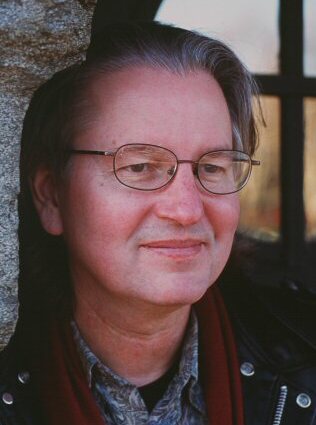| | |
Type of site | Blog |
|---|---|
| Dissolved | 2018 |
| Owner | Condé Nast |
| Editor | Steven Levy |
| URL | medium.com/backchannel |
| Launched | 2014 |
Backchannel was an online magazine that published in-depth stories on technology-related news on Medium.
| | |
Type of site | Blog |
|---|---|
| Dissolved | 2018 |
| Owner | Condé Nast |
| Editor | Steven Levy |
| URL | medium.com/backchannel |
| Launched | 2014 |
Backchannel was an online magazine that published in-depth stories on technology-related news on Medium.
In early 2014, Ev Williams, founder of Medium, invited Stephen from Wired to start a tech column on Medium, Backchannel. [1]
Backchannel has interviewed many notable figures, such as Demis Hassabis of Google DeepMind and Orrin Hatch of the Republican Party. The journalists who wrote for the site included Steven Levy, Andrew Leonard, Susan P. Crawford, Virginia Heffernan, Doug Menuez, Peter Diamandis, and Jessi Hempel.
In 2016, it was announced that Condé Nast had purchased Backchannel, though no terms of the deal were communicated, and only a transfer of the editorial team was planned. [2] [3] [4] In September 2017, it was officially announced that Backchannel would become a weekly magazine on Wired.com. It was also explained that Backchannel had migrated away from Medium because of the platform's shifting business model. [5] In January 2018, publications definitely stopped on Medium. [6] Backchannel.com now redirects to Wired's section The Big story. [7]
Backchannel was the last "major sponsored publications built on top of Medium’s publishing platform". [3]

Michael Bruce Sterling is an American science fiction author known for his novels and short fiction and editorship of the Mirrorshades anthology. In particular, he is linked to the cyberpunk subgenre.
Wired is a monthly American magazine, published in print and online editions, that focuses on how emerging technologies affect culture, the economy, and politics. Owned by Condé Nast, its editorial offices are in San Francisco, California, and its business office at Condé Nast headquarters in Liberty Tower in New York City. Wired has been in publication since its launch in January 1993. Several spin-offs have followed, including Wired UK, Wired Italia, Wired Japan, Wired Czech Republic and Slovakia and Wired Germany.
Vogue, also known as American Vogue, is a monthly fashion and lifestyle magazine that covers style news, including haute couture fashion, beauty, culture, living, and runway. It is part of the global collection of Condé Nast's VOGUE media.

Steven Levy is an American journalist and editor at large for Wired who has written extensively for publications on computers, technology, cryptography, the internet, cybersecurity, and privacy. He is the author of the 1984 book Hackers: Heroes of the Computer Revolution, which chronicles the early days of the computer underground. Levy published eight books covering computer hacker culture, artificial intelligence, cryptography, and multi-year exposés of Apple, Google, and Facebook. His most recent book, Facebook: The Inside Story, recounts the history and rise of Facebook from three years of interviews with employees, including Chamath Palihapitiya, Sheryl Sandberg, and Mark Zuckerberg.
Condé Nast is a global mass media company founded in 1909 by Condé Montrose Nast (1873–1942) and owned by Advance Publications. Its headquarters are located at One World Trade Center in the Financial District of Lower Manhattan.

Pitchfork is an American online music publication founded in 1996 by Ryan Schreiber in Minneapolis. It originally covered alternative and independent music, and expanded to cover genres including pop, hip hop, jazz and metal. Pitchfork is one of the most influential music publications to have emerged in the internet age.

Hotwired (1994–1999) was the first commercial online magazine, launched on October 27, 1994. Although it was part of the print magazine Wired, Hotwired carried original content.

Ars Technica is a website covering news and opinions in technology, science, politics, and society, created by Ken Fisher and Jon Stokes in 1998. It publishes news, reviews, and guides on issues such as computer hardware and software, science, technology policy, and video games.
Gourmet magazine was a monthly publication of Condé Nast and the first U.S. magazine devoted to food and wine. The New York Times noted that "Gourmet was to food what Vogue is to fashion." Founded by Earle R. MacAusland (1890–1980), Gourmet, first published in January 1941, also covered "good living" on a wider scale, and grew to incorporate culture, travel, and politics into its food coverage. James Oseland, an author and editor in chief of rival food magazine Saveur, called Gourmet "an American cultural icon."
SoundJam MP is a discontinued MP3 player for classic Mac OS-compatible computers and Rio-compatible hardware synchronization manager that was released in July 1999 and was available until June 2001. Jeff Robbin and Bill Kincaid developed SoundJam MP with assistance from Dave Heller. Robbin and Kincaid chose Casady & Greene to publish SoundJam MP. Apple, Inc. purchased SoundJam MP in 2000 and further developed the code to create iTunes version 1.0. Casady and Greene ceased publication of SoundJam MP in June 2001 at the request of the developers.

Women's Wear Daily is a fashion-industry trade journal often referred to as the "Bible of fashion". It provides information and intelligence on changing trends and breaking news in the men's and women's fashion, beauty, and retail industries. Its readership is made up largely of retailers, designers, manufacturers, marketers, financiers, media executives, advertising agencies, socialites, and trend makers.
Style.com was best known as a website owned by international media company Condé Nast. Under Condé Nast, starting in 2000, Style.com was the online site for fashion magazines Vogue and W. It featured online versions of some of the magazine's content as well as Internet-exclusive material such as event photographs and style-related articles. In September 2016, Style.com was relaunched as a luxury e-commerce website. It was closed and absorbed by online retailer Farfetch.com in June 2017.

Vogue Italia is the Italian edition of Vogue magazine owned by Condé Nast International. In publication since 1964, it has been called the top fashion magazine in the world.
Penske Media Corporation is an American mass media, publishing, and information services company based in Los Angeles and New York City. It publishes more than 20 digital and print brands, including Variety, Rolling Stone, Women's Wear Daily, Deadline Hollywood, Billboard, The Hollywood Reporter, Boy Genius Report, Robb Report, Artforum, ARTNews, and others. PMC's Chairman and CEO since founding is Jay Penske.
Prometheus Global Media was a New York City–based B2B media company. The company was formed in December 2009, when Nielsen Company sold its entertainment and media division to a private equity-backed group led by Pluribus Capital Management and Guggenheim Partners. Guggenheim acquired Pluribus's stake in the company in January 2013, giving it full ownership under the division of Guggenheim Digital Media.
Medium is an American online publishing platform developed by Evan Williams and launched in August 2012. It is owned by A Medium Corporation. The platform is an example of social journalism, having a hybrid collection of amateur and professional people and publications, or exclusive blogs or publishers on Medium, and is regularly regarded as a blog host.
Condé Nast Entertainment (CNE) is a production and distribution studio with film, television, social and online video, and virtual reality content.

Microsoft 365 is a product family of productivity software, collaboration and cloud-based services owned by Microsoft. It encompasses online services such as Outlook.com, OneDrive, Microsoft Teams, programs formerly marketed under the name Microsoft Office, enterprise products and services associated with these products such as Exchange Server, SharePoint, and Viva Engage. It also covers subscription plans encompassing these products, including those that include subscription-based licenses to desktop and mobile software, and hosted email and intranet services.

Gideon Lichfield is a British journalist who served as global editorial director and editor-in-chief of Wired magazine from March 2021 until August 2023 and before that as editor-in-chief of MIT Technology Review.